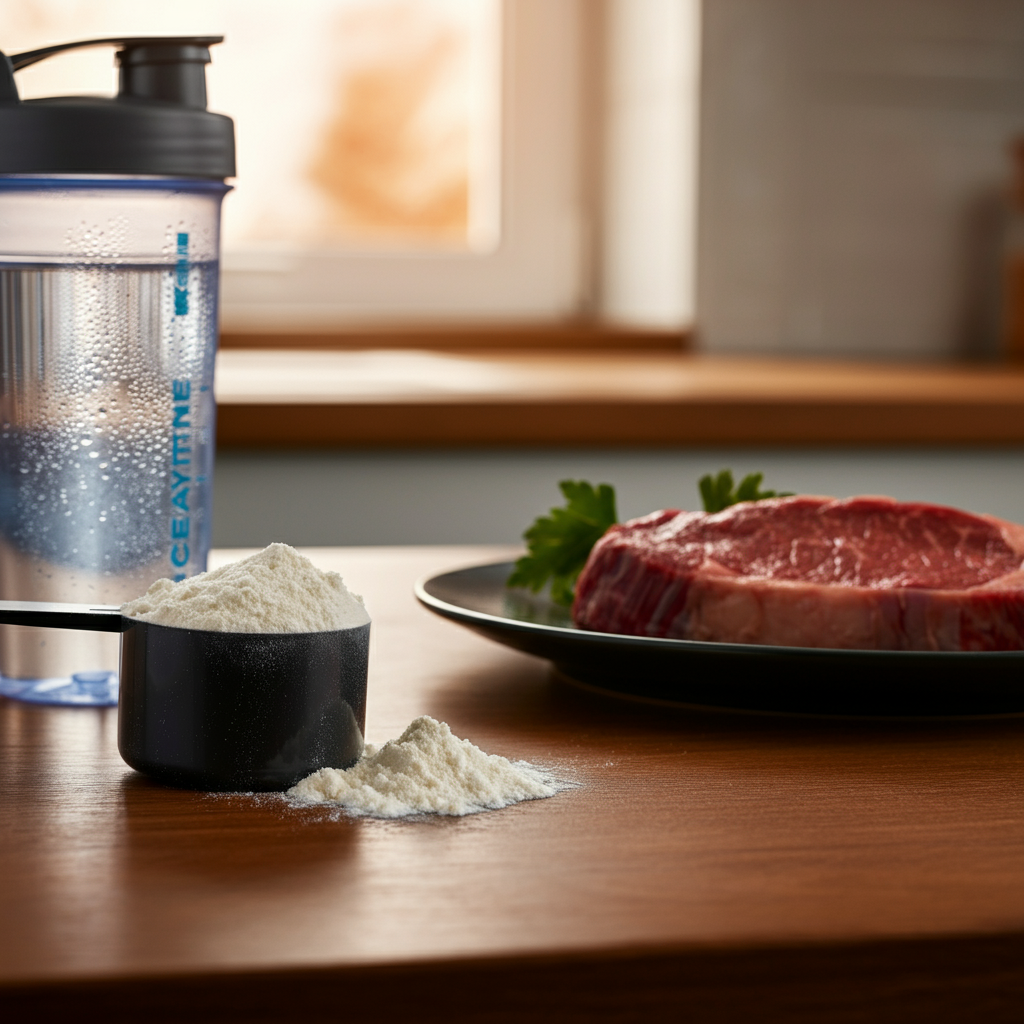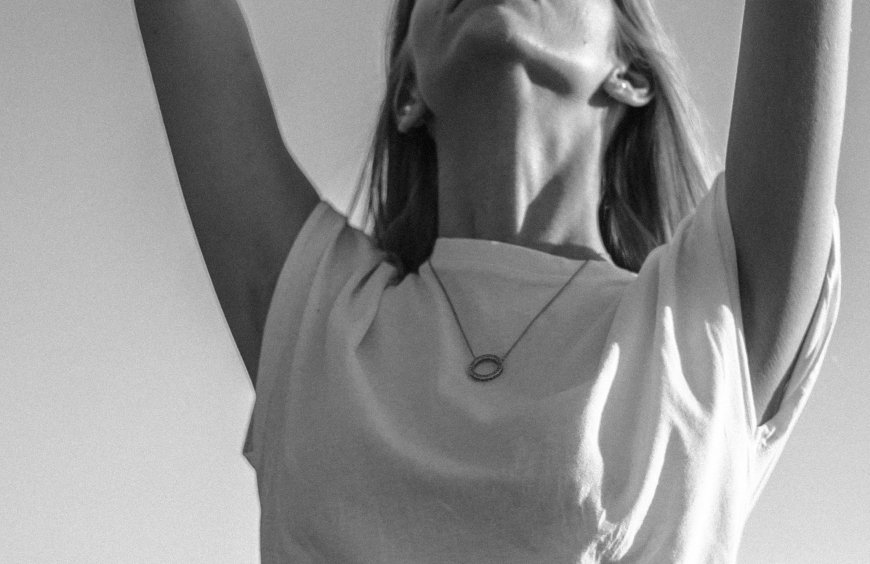
Creatine is one of the most popular supplements in the fitness industry, renowned for its ability to boost muscle growth, enhance athletic performance, and support high-intensity workouts. But while its benefits are highly sought after, there’s an ongoing debate around one potential side effect that has many fitness enthusiasts concerned: Does creatine cause hair loss?
The short answer is that while creatine may have some indirect links to hair loss, the evidence is far from conclusive. There’s a lot to unpack here, from its effects on DHT levels to the role of genetics. By the end of this post, you’ll have a clear understanding of whether creatine could impact your hair health and how to make an informed decision about supplementation.
Understanding Creatine and Its Role in Fitness
What is Creatine?

Creatine is a naturally occurring compound found in foods like red meat and fish. It’s also produced in small amounts by the human body, primarily in the liver, kidneys, and pancreas. Once in the body, creatine is stored in your muscles as phosphocreatine, where it plays a key role in providing quick bursts of energy, particularly during high-intensity activities like weightlifting and sprinting.
Common Uses of Creatine

Creatine supplements are widely used among athletes, bodybuilders, and fitness enthusiasts for several reasons:
- Enhanced Strength and Power: Creatine increases the availability of ATP (adenosine triphosphate), the energy source muscles use during workouts.
- Improved Muscle Growth: By increasing water content in muscle cells, creatine promotes muscle volume and recovery.
- Better Performance in High-Intensity Exercise: It allows for improved stamina and performance during short-duration, high-intensity activities.
For anyone looking to boost their fitness performance, creatine is often a go-to supplement, backed by a wealth of scientific research.
How Does It Affect the Body?
Creatine works by replenishing your muscles’ phosphocreatine stores. These stores act as a reserve to regenerate ATP, which fuels your muscle contractions. This process is why athletes often see improved endurance and faster recovery when using creatine.
But what about hair loss? To explore this, we need to understand its connection to Dihydrotestosterone (DHT).
The Connection Between Creatine and Hair Loss

What is Dihydrotestosterone (DHT)?
DHT is a hormone derived from testosterone. It plays a role in the development of male characteristics such as body hair and a deeper voice. However, DHT is also a key factor in male pattern baldness. Elevated levels of DHT can shrink hair follicles, shortening the hair growth cycle and leading to thinning hair and eventual hair loss.
How Creatine May Influence DHT Levels

One widely cited 2009 study examined the effects of creatine on rugby players and found a significant 56% increase in DHT levels after one week and a sustained 40% increase after three weeks. This has led to speculation that creatine might accelerate hair loss, especially in individuals predisposed to male pattern baldness.
It’s important to note, however, that this study had a small sample size and focused solely on young male athletes. While these findings are concerning, they’re not enough to conclusively link creatine to hair loss.
Does Creatine Directly Cause Hair Loss?
The short answer is no. Creatine itself does not directly cause hair loss. Instead, the concern lies in its potential to elevate DHT levels, which may exacerbate hair thinning in those already genetically predisposed to hair loss. For individuals without such predispositions, creatine is unlikely to have any significant impact on hair health.
Scientific Evidence and What Studies Reveal
Key Research Findings
While the 2009 study remains the most referenced piece of research linking creatine to increased DHT levels, the broader scientific community has not reached a consensus. Several studies investigating creatine’s effects have focused on performance and muscle growth, with limited exploration into its impact on hair health.
Contradictory Results
Some research supports the idea that creatine could influence DHT levels, but other studies have found no such effects. Additionally, hair loss is affected by multiple factors, including genetics, age, and overall health, making it challenging to isolate creatine as a singular cause.
Limitations of Existing Studies
Most studies on this topic have small sample sizes and focus on niche demographics, such as male athletes. This means the results may not be broadly applicable to the general population. More research is needed to fully understand the relationship between creatine and hair loss.
Genetics and Hair Loss Risk
The Role of Genetics in Hair Loss
Male pattern baldness, also known as androgenetic alopecia, is largely driven by genetics. If you have a family history of hair loss, you’re more likely to experience thinning hair as you age. For individuals with this predisposition, elevated DHT levels may accelerate the process, but it won’t be the sole cause.
Can Creatine Accelerate Hair Loss?
For someone already prone to male pattern baldness, the potential increase in DHT from creatine use might speed up the timeline. However, for those without such genetic factors, the risk is minimal.
Other Contributing Factors to Hair Loss
Hair loss isn’t solely about DHT or creatine. Other factors that can contribute include:
- Hormonal Imbalances: Stress, aging, and medical conditions can disrupt hormones and cause hair thinning.
- Diet and Lifestyle Choices: Poor nutrition, smoking, and lack of exercise all negatively impact hair health.
- Medications and Supplements: Certain drugs and supplements can lead to hair loss as a side effect.
- Overuse or Misuse of Creatine: While creatine is safe when used as directed, excessive intake can strain the body and potentially lead to unwanted side effects.
How to Manage Creatine Use and Your Hair Health
If you’re concerned about hair loss but still want to use creatine, here are some strategies to mitigate the risks:
Tips for Reducing DHT Levels Naturally

- Increase your intake of foods that block DHT, such as green tea, nuts, and seeds.
- Incorporate DHT-blocking shampoos or topical products into your hair care routine.
Hair Care Practices for Creatine Users
- Maintain a healthy scalp by regularly washing and conditioning your hair.
- Avoid hairstyles that strain the hairline, such as tight ponytails or braids.
When to Stop Using Creatine
If you notice increased shedding after starting creatine supplementation, it may be worth pausing and consulting with a healthcare professional for personalized guidance.
Consult a Professional
A dermatologist or trichologist can help evaluate whether DHT is contributing to your hair loss and provide targeted solutions.
Alternatives to Creatine for Muscle Growth
If you’re uncomfortable with the potential risks, you could explore alternative supplements such as:
- Protein Powders for muscle repair and growth.
- Branched-Chain Amino Acids (BCAAs) for improved endurance.
- Beta-Alanine for increased strength and reduced fatigue.
Creatine remains one of the most effective and widely used supplements for boosting athletic performance and muscle growth. While it has been linked to increased DHT levels, there’s no conclusive evidence that creatine directly causes hair loss. For the majority of users, the benefits far outweigh the potential risks.
That said, hair loss is a multifaceted issue influenced by genetics, hormones, and lifestyle factors. If you have concerns about hair thinning, it’s always best to consult with a healthcare provider to determine the right approach for you.







